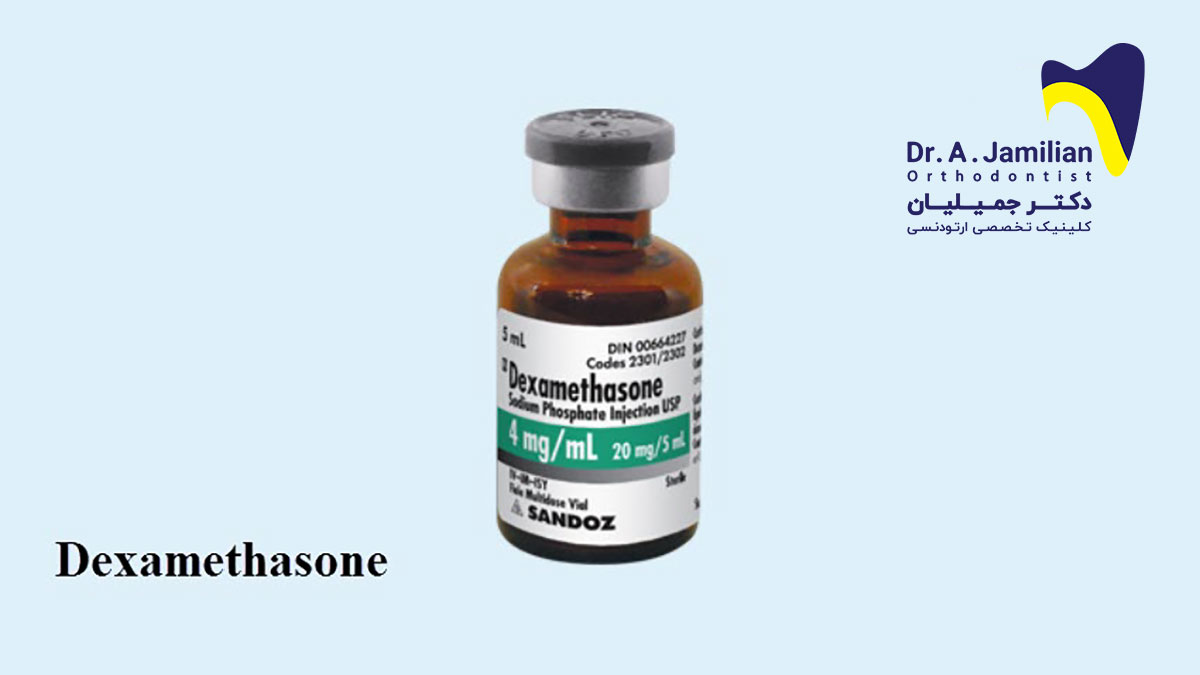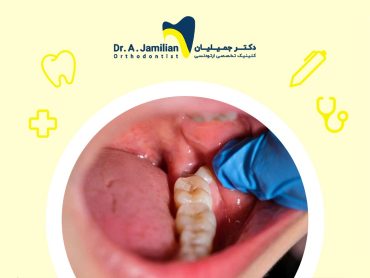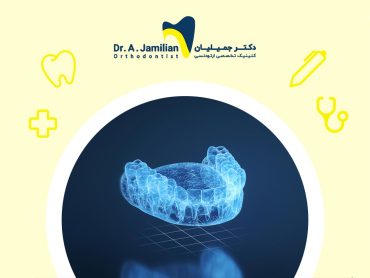Many drugs interact with corticosteroids, and many diseases are affected by steroid therapy. Because of its wide range of side effects and interactions, dexamethasone should be prescribed for patients very cautiously. Dexamethasone, and corticosteroids in general, are not considered the first and sometimes the second choice for dental pain relief. Therefore, it should be commonly prescribed by dentists. Since corticosteroids, especially dexamethasone, are also effective in reducing inflammation and pain when they are even prescribed to be administered topically, their topical administration can be much effective than their systemic administration. Although dexamethasone can relieve pain for a short time, the patient finally has no choice but to visit a dentist to definitively treat the cause of pain.
Applications of dexamethasone
The use of dexamethasone in controlling inflammation (swelling, heat, redness, and pain) is undeniable. For this reason, it is also used to treat certain forms of osteoarthritis. Dexamethasone is also used to treat skin, blood, kidney, eye, thyroid, and intestinal disorders (eg colitis). Severe allergies and asthma are also used. It is also used to treat certain types of cancer.
Recently, dexamethasone has been used to help treat coronary heart disease in advanced and severe stages for hospitalized patients. Note that dexamethasone is dangerous for the mild stage of the disease. Taking dexamethasone in the mild stage of coronary heart disease not only does not help treat coronary heart disease but also aggravates coronary heart disease. Because dexamethasone weakens the patient’s immune system.
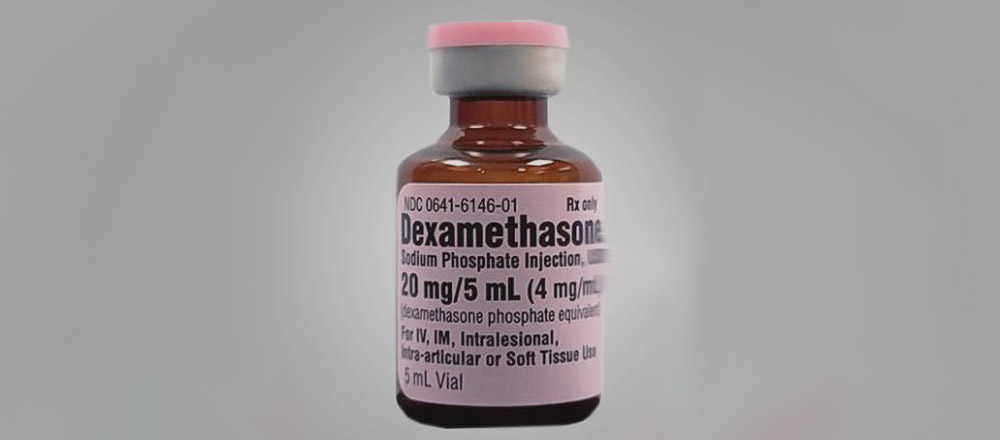
Do’s and Don’ts of Dexamethasone
Since dexamethasone is not an over-the-counter (OTC) drug, it is supplied only to consumers possessing a valid prescription. Dexamethasone should not be administered as a live vaccine because it can weaken the immune system. The dentists should review patients’ medical history before prescribing dexamethasone for them. Taking dexamethasone is considered an instance of doping in most sports. For example, Lee Chong Wei, the former Badminton world No. 1, was suspended after traces of the banned substance dexamethasone was detected in his system. The sudden discontinuation of dexamethasone after a long period can lead to drug withdrawal syndrome. Some people may be show allergic reactions to dexamethasone. In addition, dexamethasone is not recommended to be taken in the presence of fungal infections.
The topical administration of corticosteroids at high doses can directly affect the membrane. Corticosteroids reduce cellular and fibrin exudate and tissue infiltration. Other effects of corticosteroids include inhibition of collagenesis and connective tissue synthesis, delayed regeneration of epithelial cells, reduced post-inflammation angiogenesis, and reduced permeability of swollen capillaries.
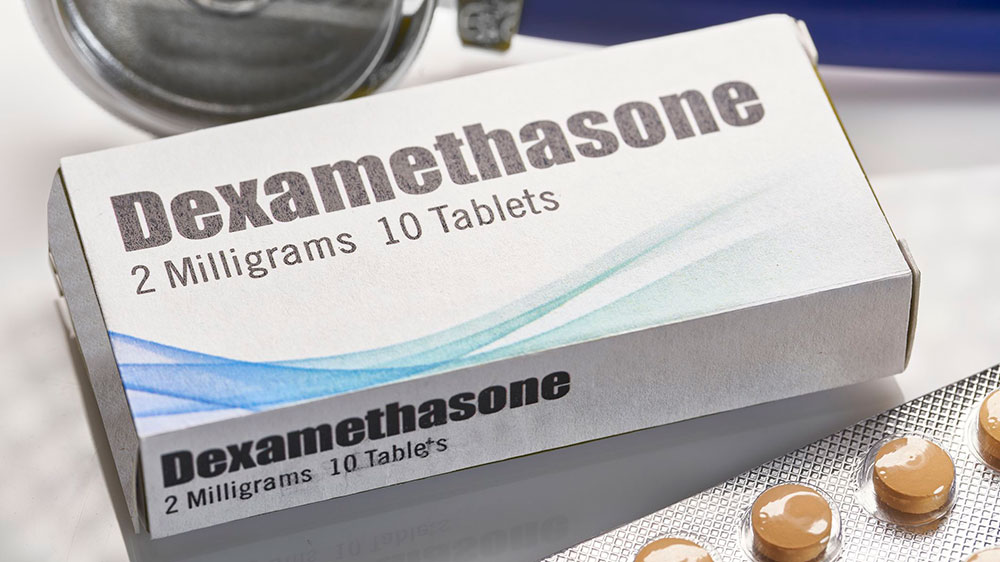
Absolute contraindications to dexamethasone are as follows: uncontrolled infections, diagnosed allergy to dexamethasone, systemic (but not local) fungal infections, and concomitant live vaccination, and cerebral malaria. Live vaccines include the MMR vaccine, the H1N1 flu vaccine, the oral polio vaccine, rotavirus, typhoid, and varicella.
The long-term administration of high doses of dexamethasone causes menstrual disorders, sexual reluctance, increased acne, and growth of facial unwanted hair, and so on, in addition to conventional side effects of corticosteroids.
The dexamethasone suppression test (DST) is typically used to diagnose Cushing’s syndrome. However, many theories now question the efficiency of this test in the diagnosis of depression.
There is no need to prescribe antibiotics in order to ensure the efficiency of the corticosteroids-caused immunosuppression when a healthy individual is prescribed dexamethasone for dentistry indications.

Dexamethasone indications during pregnancy and lactation
Since dexamethasone is classified under Category C of drugs for pregnant or lactating women, it should be prescribed for such women only when they really have no choice but to take it in order to eliminate the complaints or health threats.
There is no precise or comprehensive information about the secretion of dexamethasone into breast milk. Some corticosteroids enter breast milk but there is not enough information about their risk to the fetus. As the case may be, mothers can take dexamethasone under special precautions.
